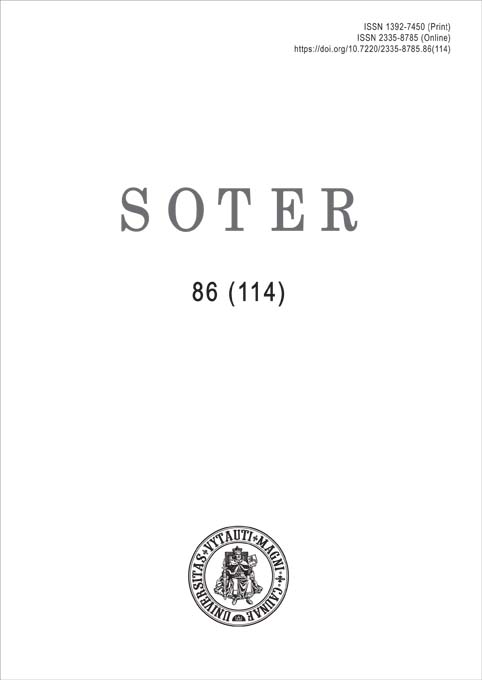Ateitininkai ir istorinis naratyvas apie XIX a. lietuvių tautinį atgimimą Lietuvos Respublikoje (1918–1940)
Ateitininkai and the Historical Narative of the 19th Century Lithuanian National Revival in the Republic of Lithuania (1918–1940)
Author(s): Dangiras MačiulisSubject(s): Christian Theology and Religion, Theology and Religion, Interwar Period (1920 - 1939), Politics of History/Memory
Published by: Vytauto Didžiojo Universitetas
Keywords: Collective memory; Lithuanian historiography; Lithuanian national revival; Ateitininkai; Republic of Lithuania (1918–1940);
Summary/Abstract: Once an undemocratic political regime is established in the country, the government representing it acquires monopoly rights to shape the culture of remembrance and present its own narrative of history, which would only serve to increase its symbolic capital and political legitimation. The article tries to answer the question whether the 20th century in interwar Lithuania, when the authoritarian regime of A. Smetona was in power, historical narratives represented by social movements unrelated to the political regime or even opposed to it could exist in the public space. In search of an answer to this question, the Lithuanian Catholic organization “Ateitis”, which included a group of well-known historians, was chosen for the study. The story of the 19th century presented by future historians was chosen for the study. Lithuanian national revival. It is said that the biggest collective scientific project implemented by future historians in the bars of history was in 1936. “History of Lithuania” edited by A. Šapoka was published. This synthesis of Lithuanian history was recommended by the authorities to be used as a school textbook. Thanks to the “History of Lithuania” edited by A. Šapoka, the story presented by future historians about the 19th century was officially established. Lithuanian national revival, which emphasizes the particularly important role of Lithuanian Catholic clergy in the Lithuanian national movement. In this way, the creators of the historical narrative about the Lithuanian national rebirth officially recognized by the government were not the representatives of the political regime, but the historians opposing it, who were the ateitininkai.
Journal: SOTER: religijos mokslo žurnalas
- Issue Year: 114/2023
- Issue No: 84
- Page Range: 43-57
- Page Count: 15
- Language: Lithuanian

